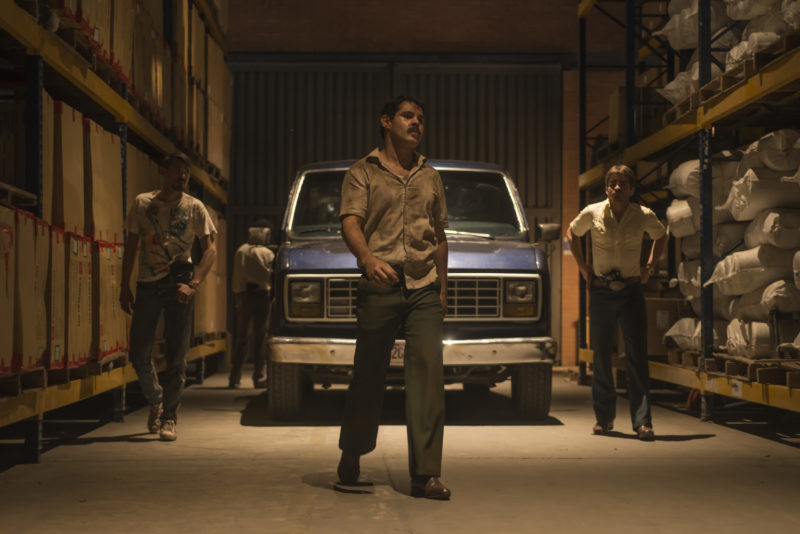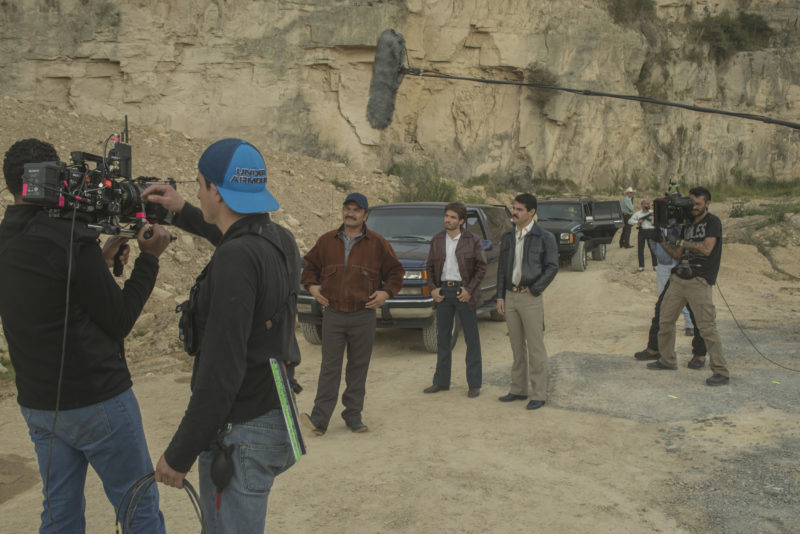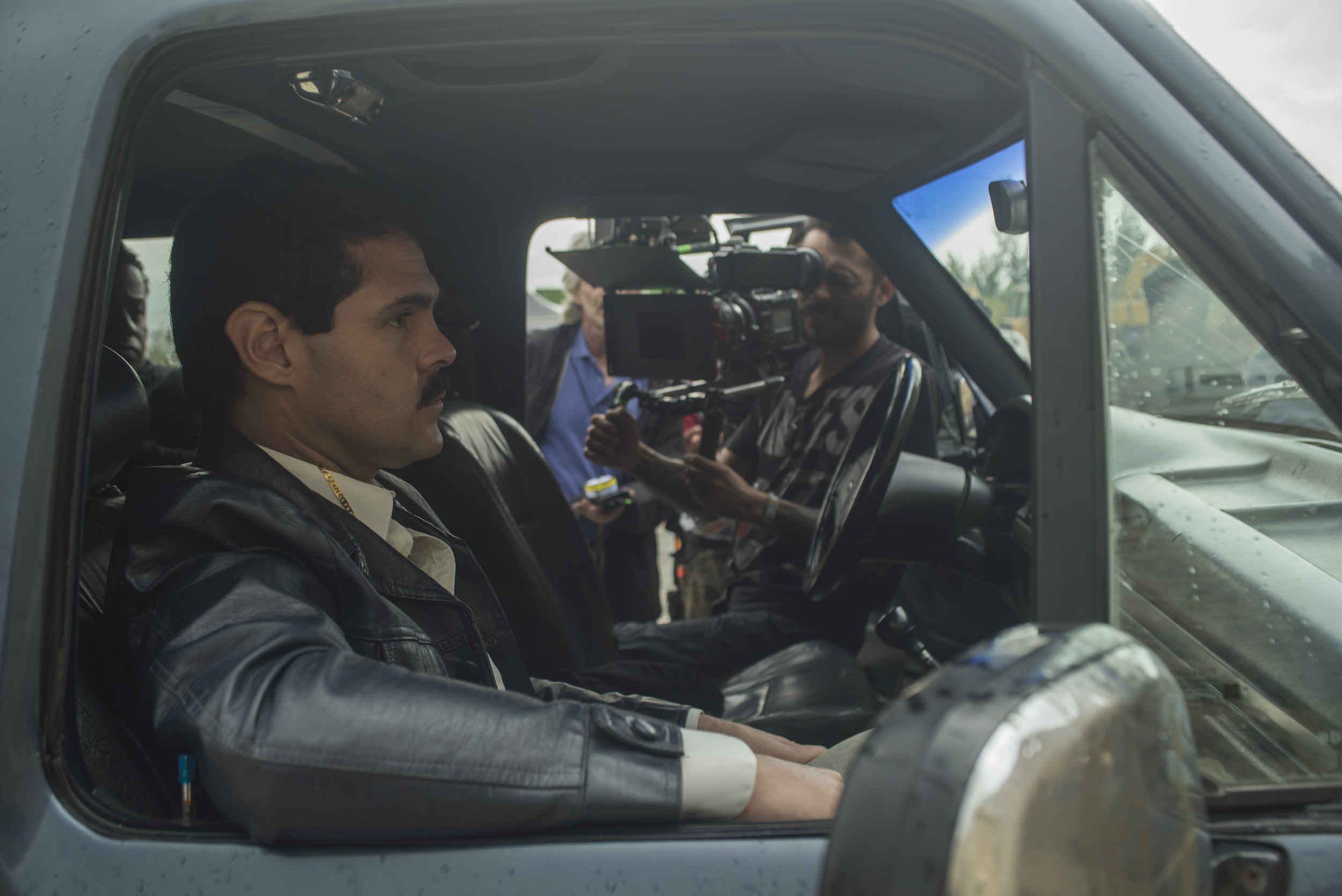Sign up for The Media Today, CJR’s daily newsletter.
In September 2013, Univision investigative journalist Gerardo Reyes turned down an interview with a source he had been chasing for years. The notorious Mexican drug trafficker Joaquín Guzmán Loera, widely known as “El Chapo,” had agreed to an interview with Reyes—with the caveat that he wanted approval on the final product. Reyes declined. “We don’t allow people to review what they say when we interview them,” he says in an interview with CJR.
A few years later, in January 2016, El Chapo hit the headlines internationally when he was captured by Mexican security forces, and US actor Sean Penn claimed the prize interview in a story published by Rolling Stone. Penn had acquiesced to El Chapo’s request. At the time, Lydia Cacho, one of Mexico’s leading investigative journalists, told CJR’s Joel Simon of Penn’s efforts: “This is the version of the story authorized by El Chapo.”
Now, Reyes is part of a team at Univision working on the “unauthorized” Spanish-language biopic of the drug kingpin, based on years of investigative reporting by the network. The fictionalized series, which will air over three seasons beginning April 23 on Univision (and Netflix sometime later) with a season-one run of nine hour-long episodes, is called simply El Chapo. It’s the result of a new collaboration between Univision’s investigative-journalism unit and a creative team under the umbrella of Story House, a production unit that launched last year as part of the Fusion Media Group (owned by Univision Communications). A co-production with Netflix, this is the first scripted series released by the unit, which has previously stuck to documentaries.
The idea of bringing together fact and fiction is not new, but there is a renewed interest in depicting high profile news events in a more captivating way to educate and engage audiences. Some examples include last year’s wildly successful The People vs O.J. Simpson: American Crime Story and 2015’s Narcos based on the life of drug lord Pablo Escobar. While journalists consulted on these projects, it is unusual to see a media organization bringing together its fiction and news arms in an ongoing way. El Chapo is the first of a series of projects Reyes’s investigative team is working on with Story House. They’re mum on future topics for collaboration, and also on how much they’re spending on the projects.

Season one of the fictionalized series will have nine hour-long episodes. Photo courtesy of Univision.
“We’ve been talking about doing a series on El Chapo for quite a while because he’s a very iconic figure and obviously famous in Mexico, in Latin America, but also all over the world,” says Fusion Media Group president and chief content officer Camila Jiménez Villa. One of the most well-known drug traffickers of this century, El Chapo first got into the game as a teenager in the 1970s after growing up in poverty. He worked under Miguel Ángel Félix Gallardo before starting his own operation, the Sinaloa cartel in 1989. Officials believe El Chapo’s operation spanned far beyond its base in Mexico, having worldwide reach. El Chapo is known for his two great escapes from prison. The first in 2001 from a Mexico facility in which he bribed guards to wheel him out in a laundry cart. He evaded police for over a decade before going back to jail in 2014. Around 16 months later, he went for his second great escape via an approximately one-mile-long tunnel system between his prison cell and an empty house. Since his capture last year he is being held in a US prison awaiting trial.
Univision has covered El Chapo extensively over the years. A search of his name on its site returns over 200,000 results. Reyes jokes, “We have more pieces than any other TV outlet in America about El Chapo Guzmán. Actually, I think, too many.”
To construct the narrative of El Chapo, the screenwriters and journalists had to learn to understand and accommodate each other’s perspective. While scriptwriters have the creative licence to tell a story in the most engaging and dramatic way, journalists are wed to the reality of what actually happened. Reyes describes it as a mixture of fun and frustration. “Fun because it’s a creative process,” he says. “But at the same time, we journalists are fact-addicts, and we think that reality is colorful, interesting, and complex enough that you don’t need to make it up.”
Often that was true in the tale of El Chapo, but it wasn’t always easy to translate into a story that would be satisfying for audiences. “Reality was crazier than fiction for sure,” says showrunner Silvana Aguirre Zegarra, but she adds that reality doesn’t always make sense. “Sometimes we were like, ‘Wow, this is amazing, I can’t believe this. What happened next?’ Nothing. So that was definitely challenging. We tried to be as accurate as possible with the information that we had available, but sometimes, of course, you need to fictionalize on top of those real events.”

The crew prepares to film a scene of El Chapo, which eventually will also air on Netflix. Photo courtesy of Univision.
At the beginning of the process, Reyes and his team of journalists, including Margarita Rabin and Tomás Ocaña, provided Zegarra with a timeline of El Chapo’s life that ran to 100 pages. The story was “monstrous” in both size and scope, says Zegarra. It spanned many years, hundreds of characters, and incidents that needed to be put into the context of wider Mexican history. There also were competing accounts of the same events, and, when it came to El Chapo’s day-to-day life, parts of the story were missing entirely. El Chapo was “a guy who was hidden in the Golden Triangle in Mexico with the monkeys,” according to Reyes. The writers had to fill in the gaps, condense events, and, in some cases, they blended the characteristics of multiple people into a single character. “When we saw that, it was a shock,” says Reyes. “But they had to do it.”
Sometimes there were disagreements. “Silvana can tell you that we were most annoying when we were saying that El Chapo is not Robin Hood,” says Reyes. The journalists argued against the temptation to paint El Chapo as a philanthropist who donated money and infrastructure to lift his hometown out of poverty. “That image that he was a generous man, building schools and hospitals? We can prove it’s false,” says Reyes. The journalists also insisted that El Chapo’s history of violence toward women be included. When they encountered these sticking points, the scriptwriters often backed down and found another way to tell the story.
Story House’s production decisions are based on the philosophy that audiences are drawn to authenticity in storytelling. At the same time, by fictionalizing El Chapo’s life, Villa says there are wider themes and narratives that can be touched on. There is a depth to his story that is not always explored in straight news coverage. “Corruption is something that we think is extremely timely for a millennial audience, both in Mexico, frankly, and the United States,” says Villa. Similarly, showrunner Zegarra hopes that, instead of going for easy answers, the series will give a glimpse of the complexities of the drug trade and help viewers understand how it taps into political and economic interests that are much bigger than a single character.
Another way Story House has tried to bring authenticity to the narrative is by bringing in people who have some first-hand experience or interest in the impacts of drug trafficking. Alejandro Almazán, a Mexican journalist who has written a book about El Chapo, was in the writers’ room everyday. Villa also says she was willing to take a chance on less-experienced people and allow them to grow, because having varied perspectives is valuable and helps to offer unique insights into the history and culture of the larger narrative. “To me that’s what’s most exciting about Story House,” she says. “Giving opportunities to people that are not that included in the current system and current working infrastructure and have incredible talent. We want to discover it, nurture it, and let them tell their story.”
The story of El Chapo, which spans multiple decades, is still unfolding. He is expected to appear in court in May. While the creators hope to paint a nuanced portrait that is true to life, it seems El Chapo still does not want that story told. As reported by The Associated Press, Guzmán’s lawyers have suggested that he could take legal action against Univision for using El Chapo’s nickname and details of his private life. As for how the team will manage to capture any future twists in the story, Villa says, “We close the narrative pretty close to current events today. If anything happens, if he manages to escape again, I think we are going to need a season four for that.”
El Chapo will premiere on Sunday, April 23 at 8pm ET/PT on the Univision Network.
Has America ever needed a media defender more than now? Help us by joining CJR today.



